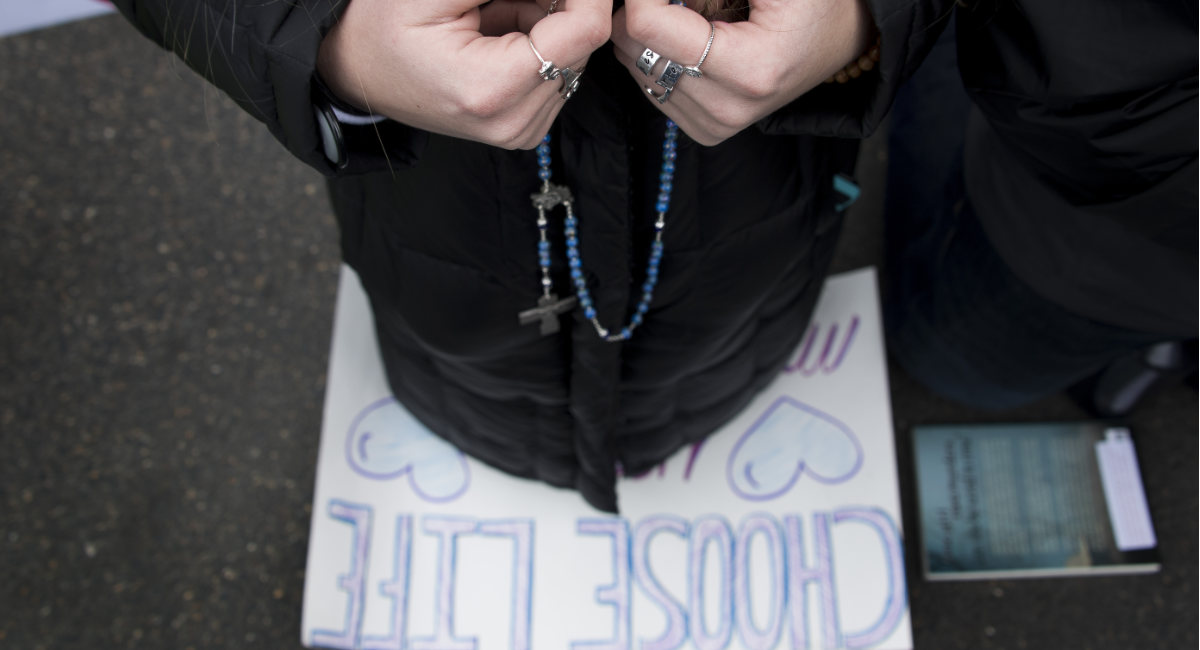This week, the Detroit City Council approved an ordinance by a margin of 7-1, implementing buffer zones around health care facilities — a measure that pro-lifers have decried as oppressive.
The ordinance would require protestors within a 100-foot zone around the entrance to the facilities to stay at least eight (8) feet away from people unless they gain their consent. Within the 100-foot zone, it also creates a zone 15 feet from the entrance to the facility where protesters cannot congregate or demonstrate.
The lone “no” vote came from Angela Whitfield-Calloway, who told the Detroit Free Press: “It doesn’t feel right for me, personally, having experienced three daughters being arrested and seeing one on TV and all three incarcerated for protesting, for being in a place where they were told they shouldn’t have been. I’m just uncomfortable with us even edging toward interfering with people’s rights to assemble and to pass out information.”
Arian Fisher, a Detroit resident, wondered why the right to protest seemed to be protected for everyone except pro-lifers. “When else does our fair city restrict the right to protest, even when it makes people uncomfortable?” she said to Bridge Detroit. “I was a sidewalk counselor in Chicago where they have a buffer zone law. It wasn’t infrequent to see a woman dragged into the clinic against her will, and there was nothing we could do to help her.”
READ: Pro-life sidewalk counselors gain victory as Kentucky judge blocks buffer zone law
Most pro-life demonstrations like 40 Days for Life are about peaceful, prayerful protests and non-violence. But that hasn’t stopped abortion supporters from claiming otherwise. Many at a city council meeting discussing the ordinance claimed that the pro-lifers were from “out of state” and were “white males” who were “screaming” at “girls.”
“If all sidewalk counselors are so calm and thoughtful and lovely to be around, why are we talking about a buffer zone?” said Shelly Miller, a local supporter of the ordinance, according to Bridge Detroit. “We’re talking about a buffer zone because that is not how they behave.”
“We approach the moms. We accompany them. We talk to them,” said pro-life sidewalk counselor Monica Miller, according to WDET. “We show them love and compassion and give them real material help so that they will turn away from their decision to abort their children.”
As Adam Kuehner, pastor of Southfield Reformed Presbyterian Church, pointed out, the buffer zone is likely to have unintended consequences of people having to speak louder to be heard.
In 2000, the U.S. Supreme Court ruled 6-3 in Hill v. Colorado that buffer zone laws did not impinge upon the freedom of protesters. However, in 2014, the McCullen v. Coakley decision ruled that preventing the exchange of ideas on public streets and sidewalks does infringe on the First Amendment rights of both protesters and the women who might wish to speak with sidewalk counselors. The decision, however, left Hill v. Colorado intact. In 2023, a case was brought asking the Court to review the Hill decision, but was denied cert.







